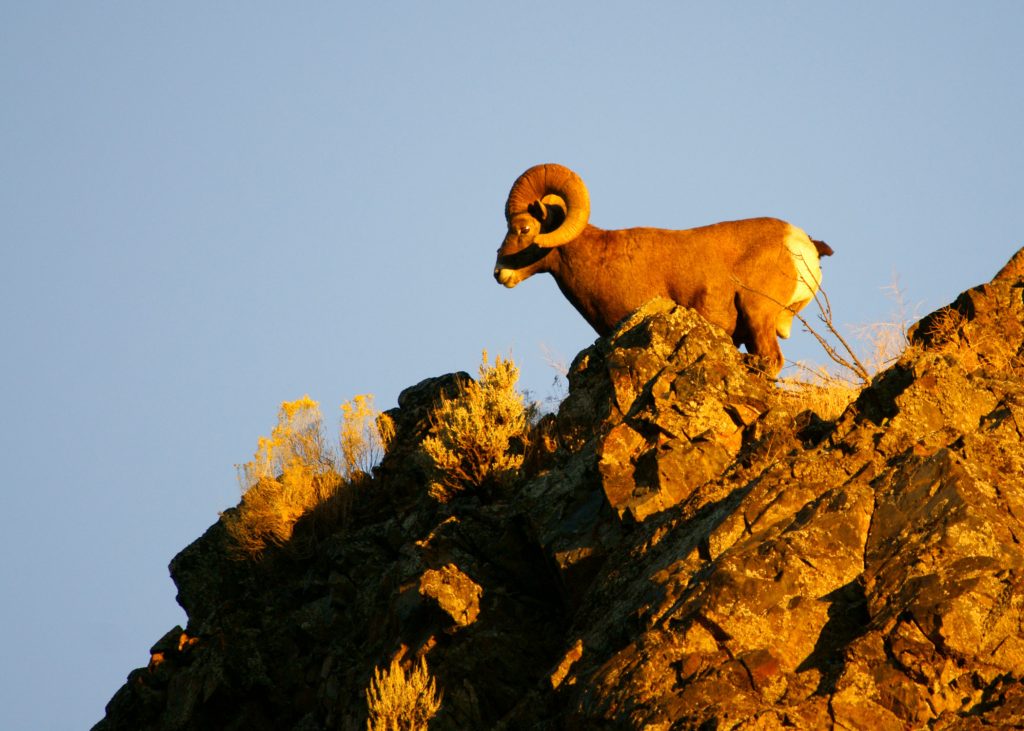Bighorn Managers Fear Disease Outbreak In Central Washington Herd
State wildlife managers say they need to kill 15 bighorns in a Central Washington herd and test others to prevent a possible disease outbreak after several rams were recently spotted with a domestic ewe.
A Washington State University lab determined the ewe to have been a carrier of Mycoplasma bacteria, which causes pneumonia in bighorns and is often fatal.

Seven rams of the Quilomene herd and the ewe were spotted together Oct. 1 in Ginkgo Petrified State Forest by an off-duty sheriff’s deputy, and the ewe was removed on Oct. 6 for testing.
It wasn’t immediately clear why the ewe was near the bighorns, if there’s a grazing lease in the area or if it had escaped from a private pasture, though few people live in the vicinity.
“At this time, we know the ewe was with wild bighorns in the most southern portion of the herd’s range, where approximately 50 bighorns are located,” said Mike Livingston WDFW Region 3 Director, in a press release. “What we have to find out is whether any of the wild sheep have contracted the disease from her. It’s an unfortunate situation, but the operation, which will primarily target rams, should have minimal effect on the overall population.”

WDFW wants to capture and test another 10 to 15 sheep to figure out if the herd, which roams the rocky eastern edge of Kittitas County, has been infected.
Along with killing bighorns outright, the bacteria can impact lamb survival rates for years. WDFW says there “is no treatment for bighorn sheep, and no preventative vaccine.”
How widely the bacteria is spread in the herd will determine next steps, according to Livingston, who said the agency needs to act quickly as this is the breeding season and rams tend to roam widely in search of bighorn ewes, increasing the risk of transmission.
If this story sounds familiar, it’s because bighorns in Central and Southeast Washington and elsewhere in the West have suffered disease outbreaks after mixing with domestic sheep and goats. The Tieton herd was completely removed in 2013 after an outbreak and to keep it from spreading to a nearby herd.
WDFW reports there are around 1,700 bighorns in around 17 herds across the Eastside. The Quilomene Herd is among the largest, with up to 250 members.
Five special permits to hunt Quilomene rams were available for this hunting season. Last year it was one of the most popular to put in for and on average required the second most points of any sheep hunt, 20, to be drawn.
